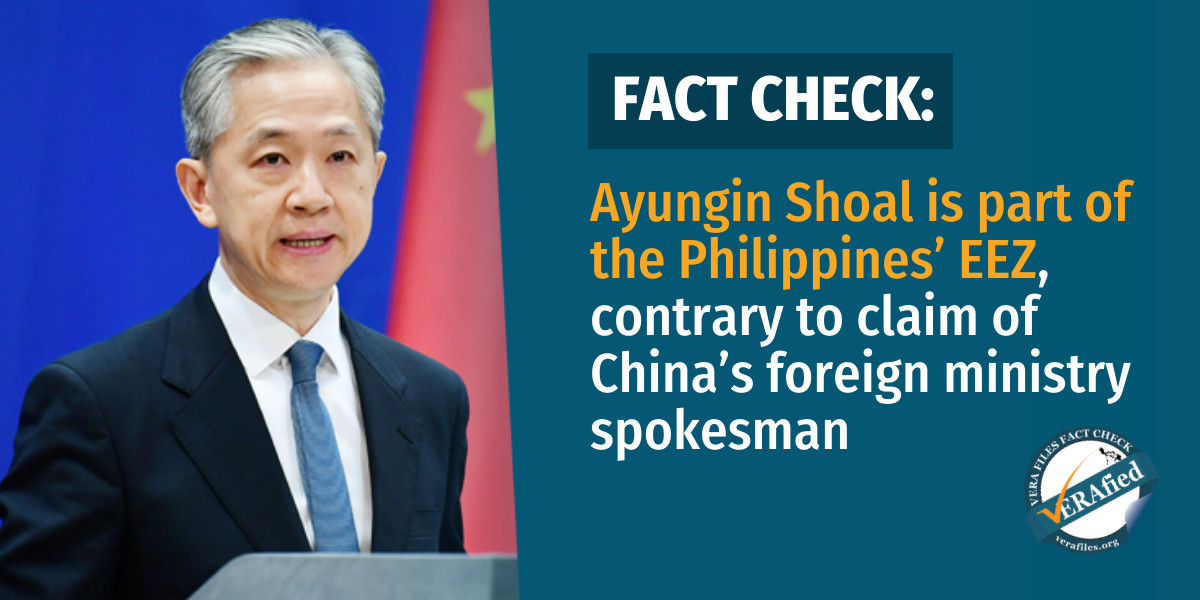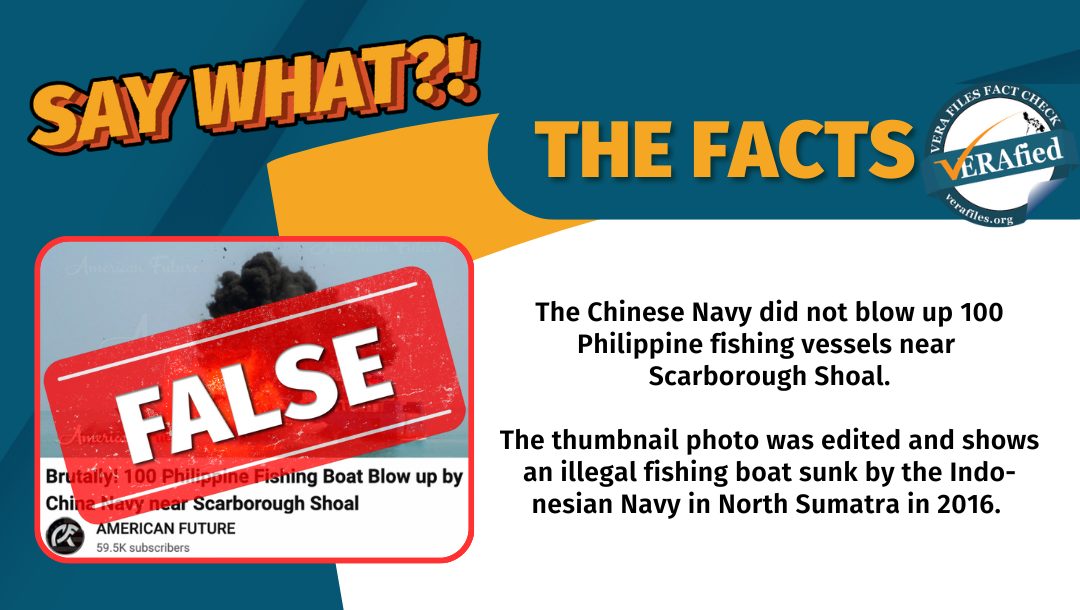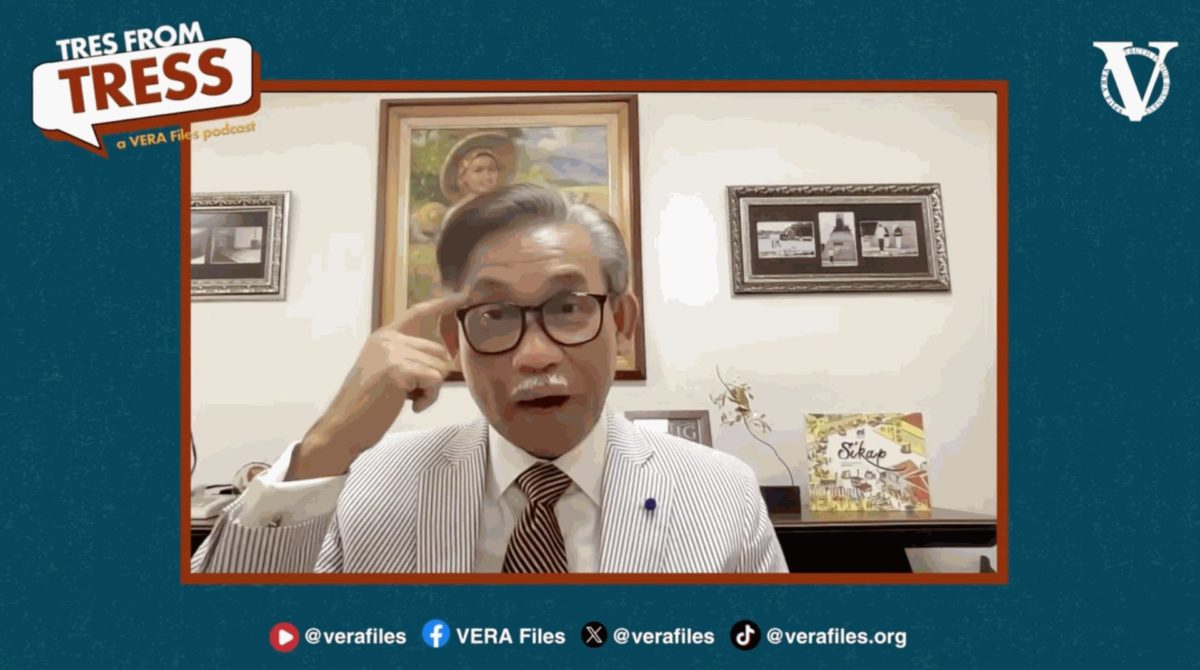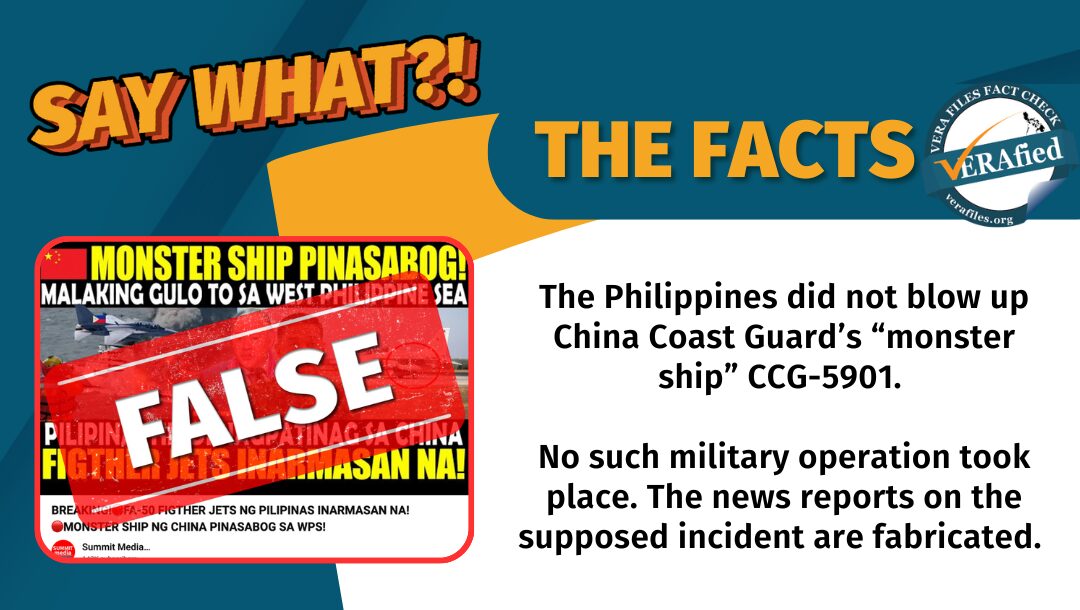The Philippines outmaneuvered China on the West Philippine Sea (WPS) dispute at the Permanent Court of Arbitration in The Hague by refusing to play the Asian superpower’s game.
“Ang argument ng China was, you have to resolve the territorial question. Sabi niya kasi, bago ka makapagsabi ng maritime entitlement — ano ang iyo, ano ang akin — dapat ma resolve muna yung question, sino ba ang may ari ng feature,” said Ambassador Henry Bensurto Jr., head of the Department of Foreign Affairs (DFA) legal team on the West Philippine Sea that bested China.
“What we did in arbitration, we created a new paradigm and that is the paradigm of separating the two. Ito ang territorial question, ito ang maritime entitlement,” Bensurto told VERA Files senior editor Tress Martelino-Reyes in the July 10 episode of Tres from Tress podcast.
To illustrate this the Philippine Ambassador to Türkiye used analogies. China’s tactic was: “So may silya [chair]. Para natin malaman na yung silya ay may ganitong space, dapat yung silya malaman muna natin sino’ng may-ari.”
On the other hand, the Philippines’ approach was: “Parang lamesa… ang question [is] yung lamesa ba is a dining table, a desk or is it a study table? In deciding if the table is a dining table, I don’t have to ask who owns that dining table.”
Territory or entitlement?
The territorial question refers to who owns the disputed land, in this case the disputed features in the WPS also known as the Spratlys group of islands. Maritime entitlement, on the other hand, pertains to who has rights and entitlement over the bodies of water surrounding the features.

“We were trying to argue that none of the features in the Spratlys is an island…at best they are rocks,” Bensurto explained.
“Bakit kailangan nating i-prove na rocks lang siya? This is because…sinasabi ng UNCLOS na depende sa character ng feature made-depende yung maritime entitlement,” he added.
According to the United Nations Convention on the Law of the Sea (UNCLOS), a maritime feature can be classified into three: an island, rock or low-tide elevation (LTE).
An island is entitled up to 200 nautical miles of Exclusive Economic Zone (EEZ), while a rock is only entitled to 12 nautical miles of territorial sea. LTEs do not generate any entitlement.
Citing its nine-dash line map, China claims almost 90% of the entire South China Sea, including the maritime zone of the Philippines, Vietnam, Malaysia, Brunei and Taiwan.
The arbitral tribunal, voting unanimously in favor of the Philippines on 14.5 of its 15 submissions, ruled that the features in WPS are not islands, but rocks and LTEs. It also ruled that China’s historic rights claim has no legal basis.
“More specifically, Reed Bank is completely ours; it’s undisputed. Ayungin shoal is completely ours, undisputed. Mischief Reef is completely ours, undisputed. Most of our fishermen should be able to fish because that’s our EEZ and what China was doing was interfering in our sovereign rights. This had clarity in the decision of the tribunal,” Bersuto stressed.
The Philippines brought the West Philippine Sea dispute before the PCA to put an end to China’s strategy of using diplomacy to mask its creeping invasion of disputed territories. Over the years, it has been able to occupy areas within the entire South China Sea piece by piece.
“Their strategy was to occupy something. Then the tension will go up, apply diplomacy. Tension will go down, but they stay there. Negotiate, then that legitimizes their move,” Bensurto said.
“There is no negotiation. Our intention is to settle the dispute. Their idea of negotiations is simply to de-escalate and negotiate that legitimizes the occupation,” he added.
Despite the country’s sweeping victory in The Hague, however, China continues to harass and prevent Filipino fishermen and troops from conducting activities in the country’s established EEZs, including exploration for resources in Reed Bank..
The envoy is not discouraged by China’s continued aggression and complete disregard of the tribunal’s legal and binding decision, saying the challenge for the Philippines is to craft a strategy on how to move forward.
“What is important is that strategic roadmap in that long-haul activity. We must not be disheartened if sometimes we fall, we always get back but always on the same road,” said Bensurto.
(The author is a journalism student at the UP College of Mass Communication and is doing her internship with VERA Files.)





